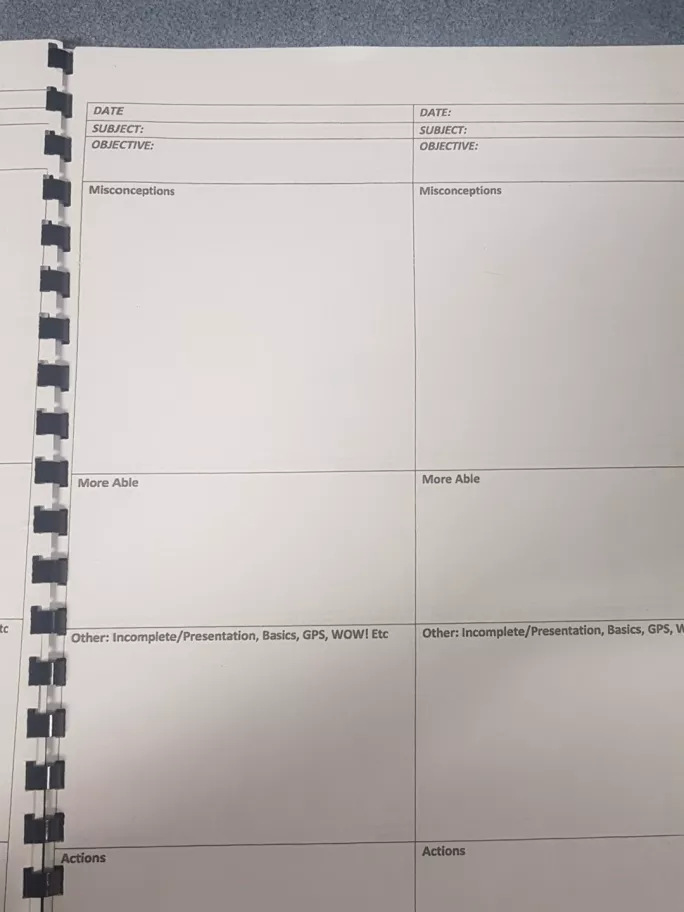Friday. 3pm. Bye you lot, have a nice weekend. Have you remembered your book bag? Got your jumper? No, he’s stayed on green all day…
Back into the classroom: 25 maths books, 25 English books. Well, excuse me if I don’t jump for joy.
Stick Spotify on, close the door and blitz through until the site supervisor opens the door and gives ‘the look’. The look that says “my tea is ready at home, please leave”.
Marking trouble
Up and down the country, this scene is repeated. So we moaned about it. Ofsted heard - and gave us a big document aimed at tackling unnecessary workload.
So my school questioned it, too. Who are we marking for? SLT? Ofsted? The children? The parents, twice a year when they come in for a nosey at books before we tell them what their little cherubs are actually like?
The answer, more often than not, is SLT and Ofsted. Do Year 1 pupils - still using phonics to decode words - benefit from “fantastic use of adjectives today, Jimmy!” and “next time, try not to place capital letters in random places within words”?
So we stopped. Simple. Just stopped.
The headteacher proposed something new. Different.
We ordered some stamps and we ordered some A4 ring-bound booklets. We took the plunge. In that moment, on the precipice of a rollercoaster, you breathe in, you clench and you think “oh god…whose idea was this?”
And then we realised: this was a brilliant idea and we should have done it a long time ago.
A simple solution
Marking is now half a single A4 page per lesson. There is a misconceptions box for initials of those who completely forgot what they were doing, or who got adverbs and adjectives mixed up and as such gave a lot of detail about a tall, skinny, loud, silly man… but nothing on how he tiptoed carefully through the forest.
There is also a box for “more able” - which isn’t necessarily your Greater Depth-elect children, because this can change depending on subject and topic. One of my less-able children across the board is, without explanation, incredible at telling the time.
Finally… the big one. Not in size, but in importance: “next steps”. For those who still live in 2013 and are forced to write “next step…please try and do x, y and z next time, Lucy”, you can now stop doing this repeatedly. Write it in the box instead and ensure that this is passed on verbally.
One big general feedback at the start of the next lesson - or even during the lesson, if you’re live-marking - is crucial to making this work.
A question of trust
Trusting your staff to implement this is a massive ask and it means braving it in the face of grumbles of “but we’ve always done it this way” and “but Ofsted will expect…”.
No. Ofsted will expect you to be following your marking policy. So make this your marking policy.
Now we don’t use PPA to catch up on marking that we tried to do last night, but fell asleep at our desks. So now those precious minutes are used to plan more effective, innovative and generally better lessons.
Your staff will thank you. Your staff will leave work before 6pm. Your staff won’t take the box of books home under their arm every night.
It takes time. We are about a year into it. We love it. Our pupils love it. Our teaching assistants love it, because they feel that they have a voice in the learning taking place.
It was a bold move by our SLT, but for the better.
Gavin Goulds is Year 1/2 teacher and maths lead at Kennington Primary School in Preston, Lancashire. He tweets @goulds_mr. This blog originally appeared at MrGouldsIsWingingThis
Want to keep up with the latest education news and opinion? Follow Tes on Twitter and like Tes on Facebook




